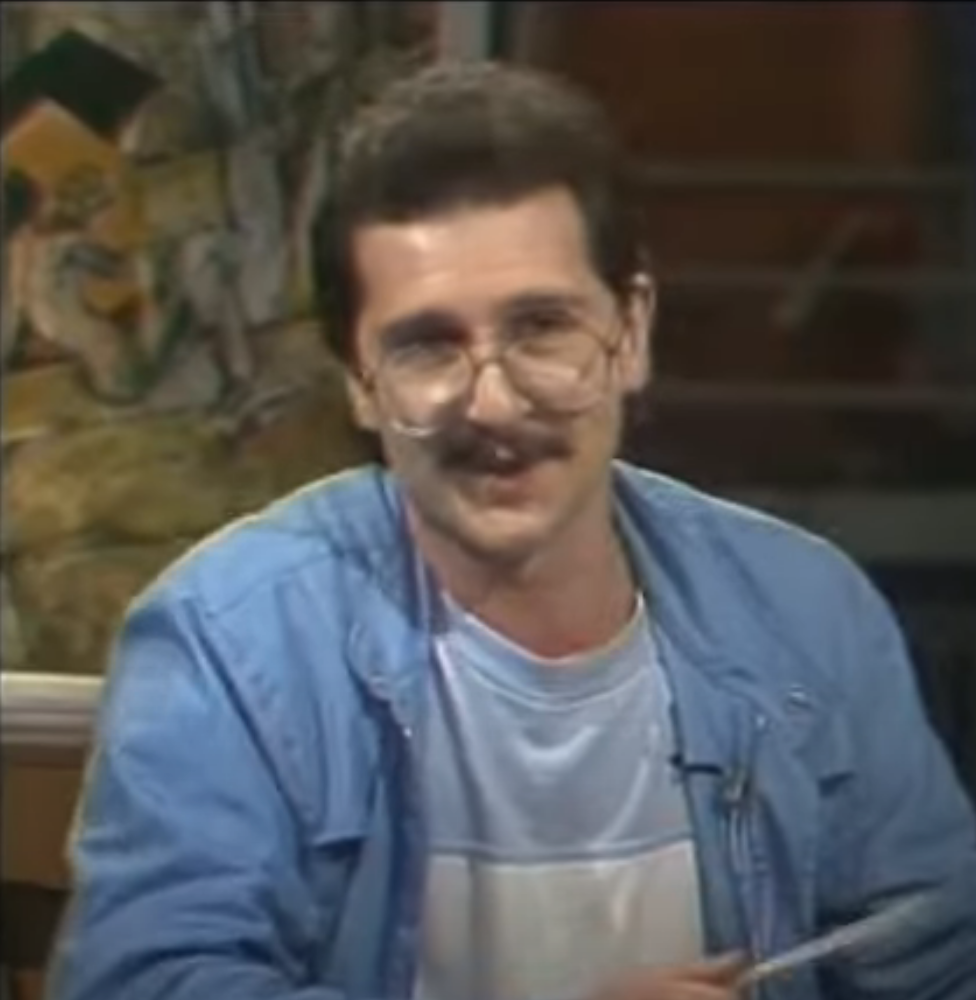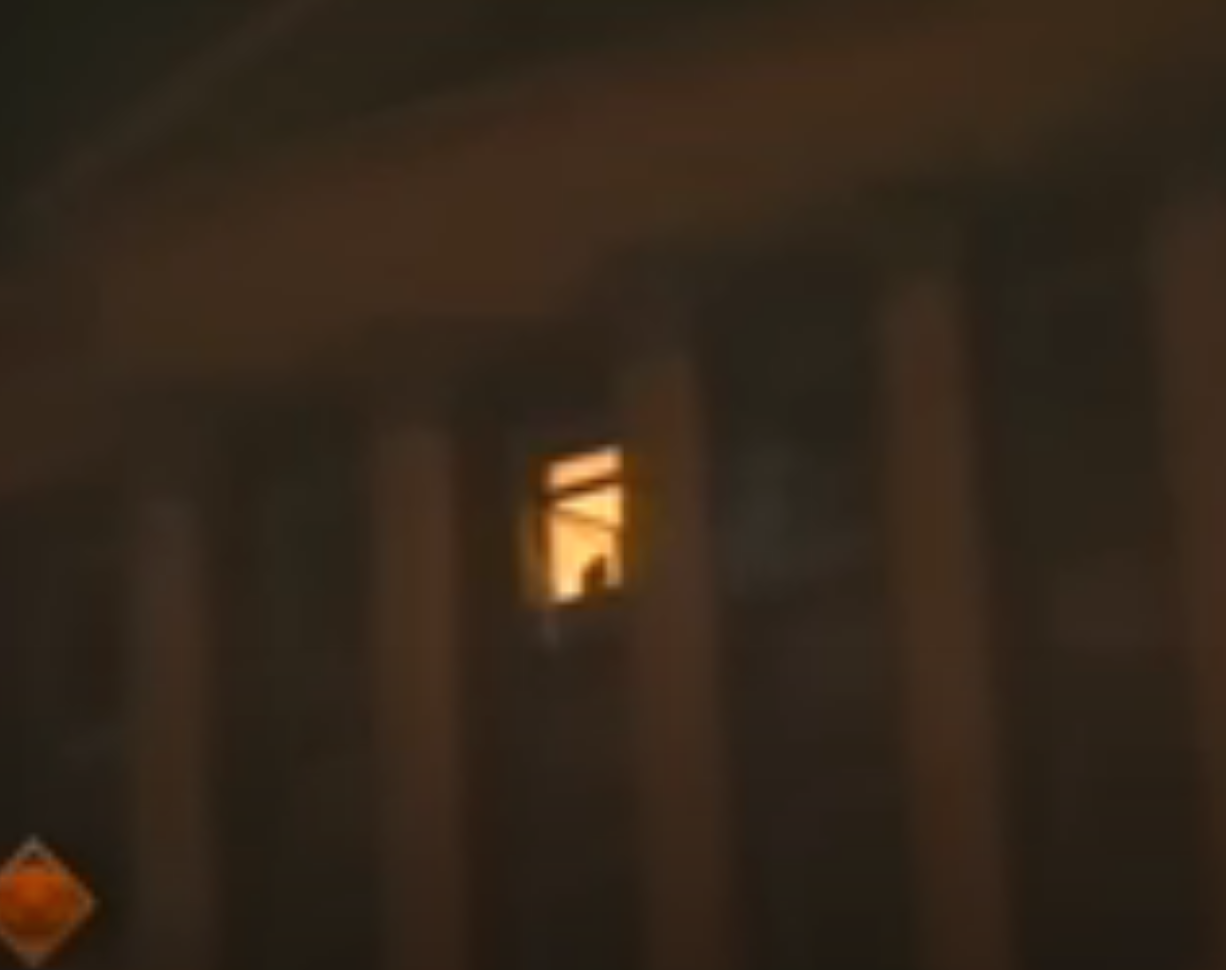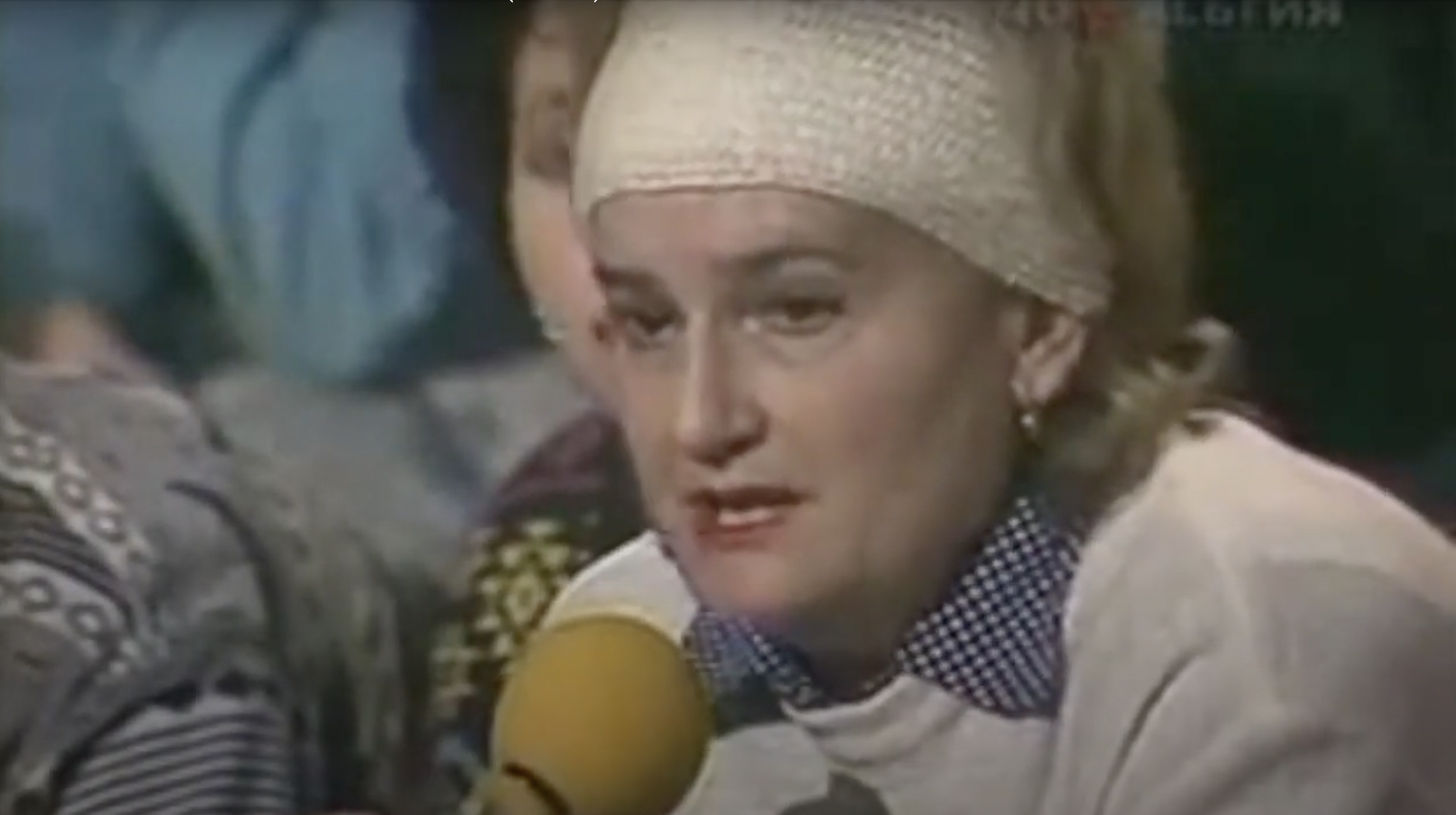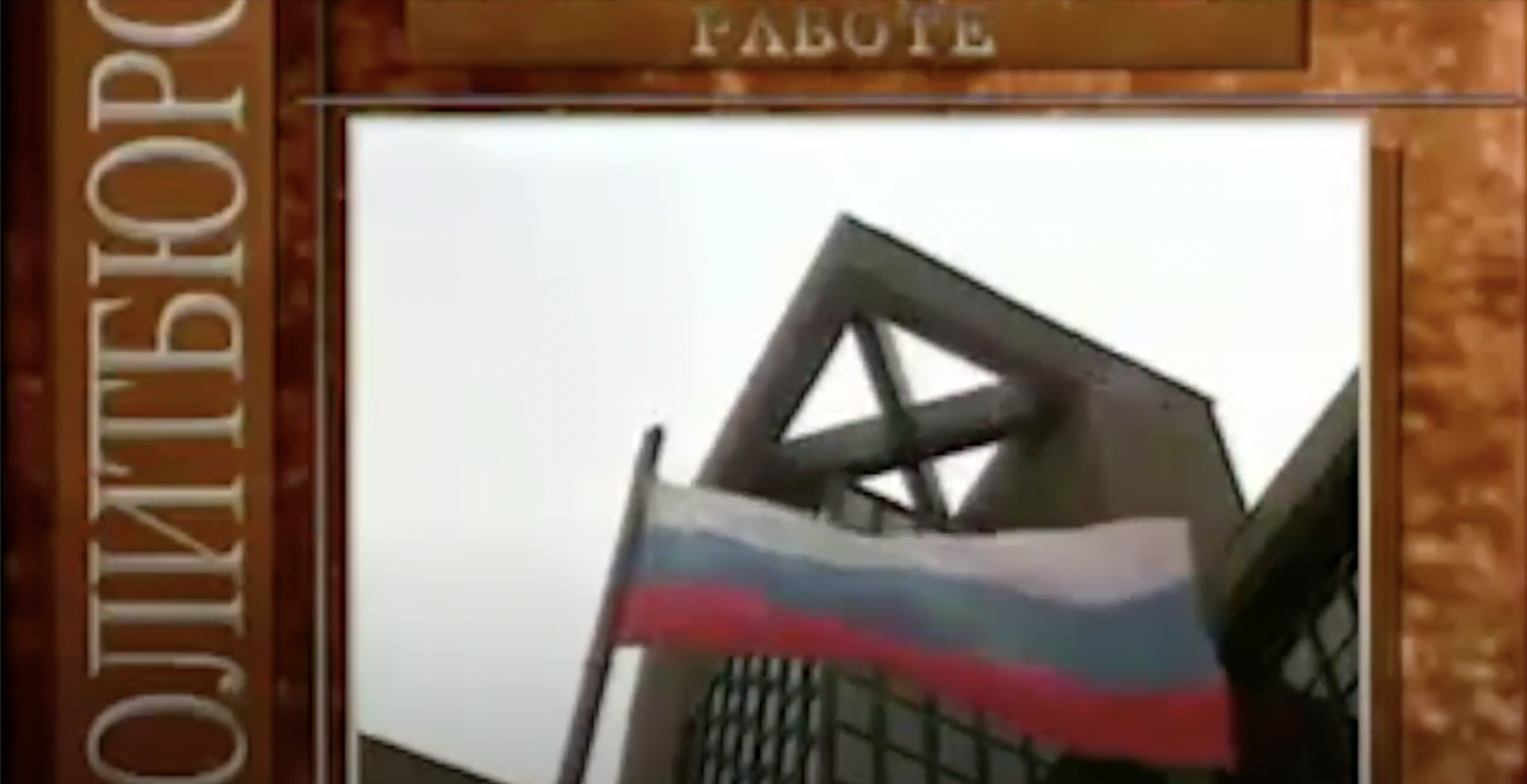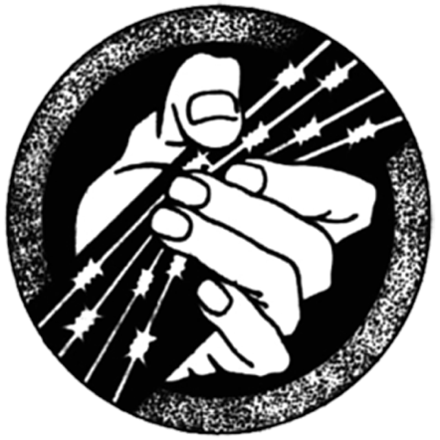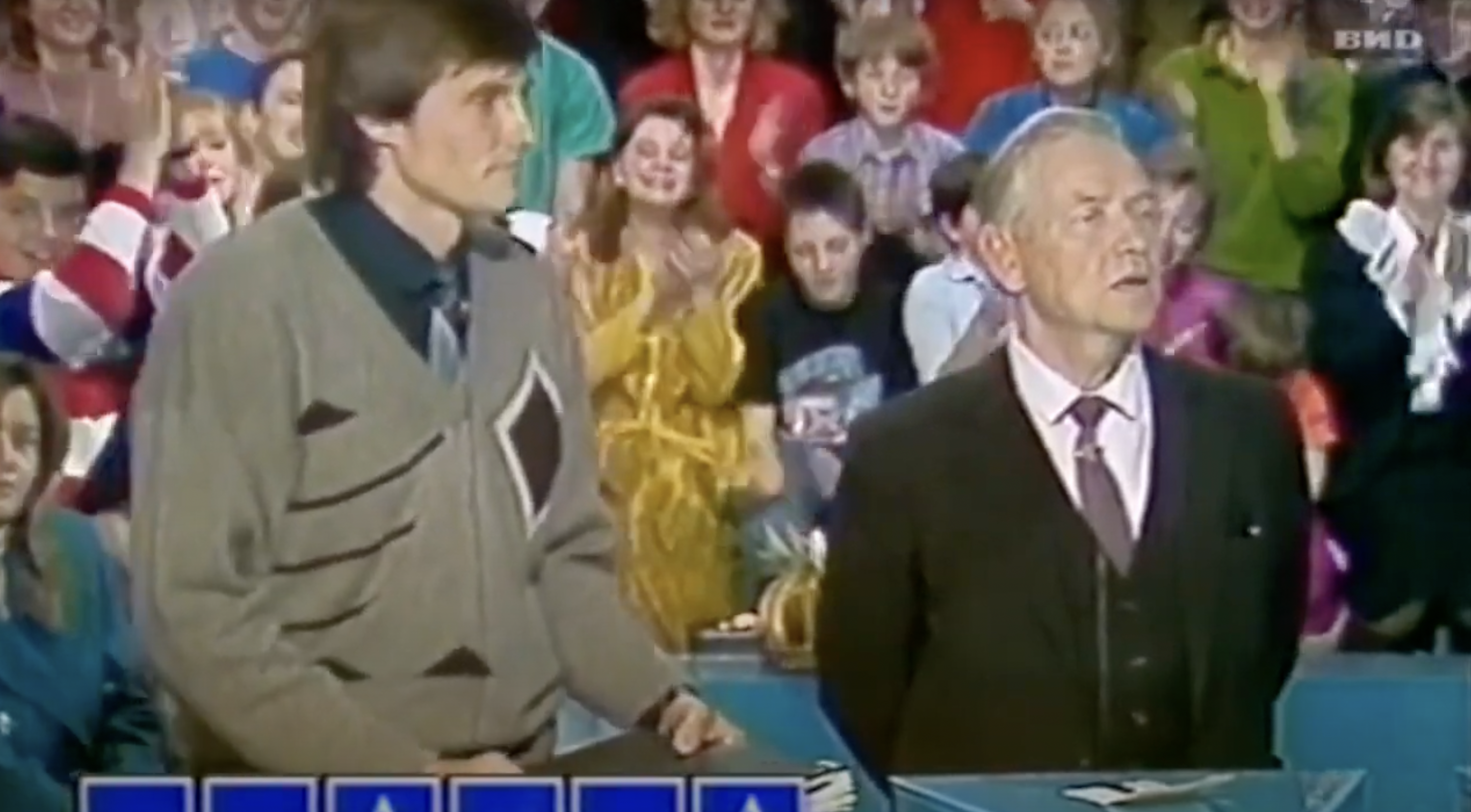Explore: person » vladislav-list-ev
Early “Vzgliad” parodies itself
A 1988 celebration of a year of the late- and post-Soviet youth program “Vzgliad,” where several sketch comedy artists parody and recapitulate its casual, sincere, and freewheeling style of television programming.
“Vzgliad” on the GKChP
Clips of “Vzgliad”'s reports during the attempted anti-Gorbachev coup of August 1991. These include the hosts’ holing up in the seat of Russia’s new parliament, the White House alongside its defenders and celebrities, including the cellist Mstislav Rostropovich (1927-2007).
An episode of the talk show “Tema”: “Racism in Russia”
A clip from the talk show "Tema [Theme]," Vladislav Listyev's (1956-1995) major post-Soviet project after the 1991 end of “Vzgliad.” This episode centers on racism in Russia and includes guest Dzheims (James) Lloydovich Patterson (1933-), who played an interracial baby in the classic Stalin-era musical comedy Circus (1936).
“Politburo” versus the specter of communism during the 1993 Constitutional Crisis
A clip from “Politburo,” a weekly commentary show from Aleksandr Politkovsky, a former host of “Vzgliad.” This episode aired in the days following the April referendum that solidified Yeltsin’s position, and, in particular, follows People’s Deputy (and Yeltsin opponent) Alexander Rutskoy's first salvo in the so-called "Kompromat Wars," in which he made public 11 suitcases’ worth of material allegedly documenting Yeltsin's corruption. The episode ends with some May Day-themed anti-communist “chastushki” (Russian limericks).
“Rock Against Terror”
The concert logo for the Rok protiv terrora (Rock Against Terror) music festival, which took place in Moscow on 6 April 1991.
“Field of Wonders”: The post-Soviet people’s show
A clip from the most-watched entertainment show of the 1990s, "Pole chudes [Field of Wonders],” featuring the post-Soviet “narod” (people) of regular folks engaged in a free-flowing relationship with both capitalism and Russia’s Central Television.
